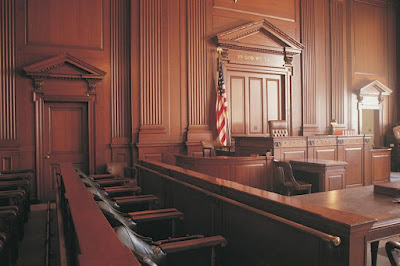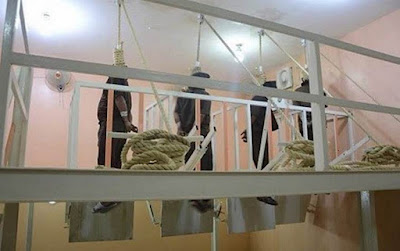 |
| Abdul Quader Mollah |
The execution of an opposition leader in Bangladesh sparked violent protests Friday as activists torched homes and businesses belonging to government supporters, leaving at least three people dead, in a fresh wave of bloodshed ahead of elections next month.
Abdul Quader Mollah, 65, was hanged Thursday night for war crimes committed during Bangladesh's 1971 war of independence against Pakistan. The case has exacerbated the explosive political divide in Bangladesh, an impoverished country of 160 million.
Even as violence swept through parts of the country Friday, hundreds of people rejoiced in the streets of the capital, Dhaka, and said justice had been served.
In an editorial, Bangladesh's English-language Daily Star newspaper congratulated Prime Minister Sheikh Hasina for trying and executing Mollah "40 long years" after he committed his crimes.
Mollah, a leader of the Islamist party Jamaat-e-Islami, was the first person to be hanged for war crimes in Bangladesh under an international tribunal established in 2010 to investigate atrocities stemming from the independence war.
Jamaat-e-Islami activists on Friday attacked ruling party supporters and minority Hindus in parts of Bangladesh, torching their homes and shops. At least three people died in the violence, local TV stations reported. Hindus are believed to be supporters of Hasina.
In Dhaka, Jamaat-e-Islami activists torched at least four cars and a motorcycle near the country's main railway station, said Shahzadi Sultana, a fire official. Several homemade bombs were detonated during the attack, Somoy TV reported.
Following the execution, a Jamaat-e-Islami leader, Makbul Ahmed, said in a statement that "people would take revenge on this killing by establishing Islam in Bangladesh, which is stained with the blood of Abdul Quader Mollah."
Those who support the execution say that Mollah was hanged for serious crimes, and that the punishment had nothing to do with Islam.
Bangladesh says Pakistani soldiers, aided by local collaborators including Mollah, killed at least 3 million people and raped 200,000 women during the nine-month war against Pakistan.
The case remains politically volatile because most of those being tried are connected to the country's opposition. Mollah was a key member of Jamaat-e-Islami, which is barred from taking part in next month's national elections. But the group is closely tied to the main opposition Bangladesh Nationalist Party.
Opponents of Jamaat-e-Islami say it is a fundamentalist group with no place in a secular country. Bangladesh is predominantly Muslim, but is governed by largely secular laws.
The special tribunal convicted Mollah of killing a student and a family of 11, and of aiding Pakistani troops in killing 369 other people during the war. The court had stopped his execution at the last minute Tuesday night — just hours before he was due to be hanged — before rejecting his final appeal.
The execution could complicate an already tense political situation in Bangladesh, where the opposition has carried out violent protests, demanding an independent caretaker government to oversee the Jan. 5 general election.
The government rejected that demand. An opposition alliance led by former Prime Minister Khaleda Zia plans to boycott the vote. Weeks of protests have left nearly 100 people dead since October.
Source: Jakarta Post, December 13, 2013
Bangladesh: At least 25 killed in clashes since hanging of Jamaat-e-Islami
At least four more deaths have been reported in Bangladesh as riots
continue to surge following the execution of top opposition leader,
Abdul Quader Molla.
Prime Minister Sheikh Hasina vowed to crack
down on the violence on Sunday as opposition supporters torched houses
and fought battles with officers during a third day of unrest, police said.
At least 25 people have been killed in clashes involving opposition,
pro-government activists and police since Thursday, when Jamaat-e-Islami
leader, Abdul Quader Molla, was put to death for crimes committed
during the nation's independence war in 1971.
Members of the Jamaat-e-Islami party said the execution was politically motivated.
Molla's hanging triggered fresh unrest in Bangladesh, which was already
reeling from political violence in the build-up to a deeply divisive
national election scheduled for January 5.
Independent United
Nations experts Urged the Bangladeshi government to postpone Molla's
hanging, citing concerns that he did not receive a fair trial, according
to a UN press release.
"The execution of Molla could trigger
further violence and unrest that has been agitating the country in the
recent months,” said Christof Heyns, Special Rapporteur on summary
executions in the UN press release.
Opposition parties have
demanded that the government resign and hand over power to an
independent caretaker to oversee January's vote.
Molla was one
of five opposition leaders and other politicians sentenced to death by
the International Crimes Tribunal, which was set up in 2009 to
investigate crimes of genocide committed in 1971 during the Bangladesh
Liberation War.
Some 250 people have been killed in street protests since January, when the first verdicts of the tribunal were handed down.
Source: Al Jazeera, December 15, 2013


.jpg)







